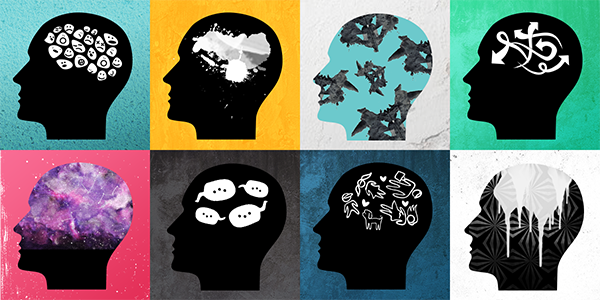Psychotherapy is the treatment given by trained professionals to individuals suffering from emotional distress and mental health problems. Sessions in counseling refer to organized sessions between a licensed provider and a client to change every part of their lives website.
Different people require different therapy like cognitive therapy, family therapy, behavioral therapy, etc. Psychotherapy includes many forms of treatment and is conducted using several methods.
All the therapists do not follow one way or the same approach. Different therapists believe in various techniques, and people must understand what kind of approach helps them. This can help them choose a therapist according to their need and have a practical session.
- Cognitive-Behavioral Therapy: Cognitive behavioral therapy(CBT) approach involves an understanding between cognitive and behavioral aspects and how both work together.
The idea revolves around how behavioral and cognitive factors interact with each other, and changing aspects of one can affect the other. This approach comes from combining both the Behavioral Approach and Cognitive Approach.
The therapist and the client work with the unhealthy thought pattern and work on it to change the behavioral patterns caused by it. This approach works well with many different types of disorders: Phobias, Depression, Anxiety disorders, eating disorders, trauma-based disorders, etc.
- Exposure Therapy: Exposure therapy is a part of CBT. Exposure therapy involves exposing the clients to triggers that cause them discomfort without causing any real harm.
Sometimes these triggers might interrupt the person’s daily life and affects him/her in a professional and social setting. Exposure therapy is used for behavioral issues caused by faulty thought processes.
Exposure therapy helps people help with disorders like Obsessive Compulsive Disorder, Post Traumatic Stress Disorder (PTSD), Phobias, etc.
- Psychodynamic Therapy: The goal of psychodynamic therapy focuses on helping a person overcome harmful behavioral habits from previous experiences.
The therapist asks a certain number of questions and the clients answer freely and based on the answers, they assess the answers and then understand and identify different behavioral patterns.
Once the person realizes the different behavioral patterns caused by past life experiences, they can change them.
- Animal Assisted Therapy: Animal Assisted therapy involves using animals to help people with anxiety-related disorders. Most nursing homes, disability centers, and medical facilities have animals as support and comfort.
Many pieces of research have indicated that animal therapy helps people who have cancer, heart diseases from getting depressed or stressed.
The animal-assisted treatment works well with people who have PTSD or needs complete admission to an institution.
- Family Therapy: Family therapy helps people who have emotional and mental issues to get through it by working with their families and educating them on how to help them.
Family therapy can help family members form a support group for the individual to get over their issues. It can help individuals suffering from Obsessive-Compulsive Disorder (OCD), substance use disorder, medical issues, anxiety, etc.
- Group Therapy: Group counseling helps persons with common difficulties come together to overcome them. A therapist leads the conversation in community therapy, and participants will share or add personal opinions and experiences.
The downside in group therapy is that a person does not get the same amount of one-on-one support as in a one-to-one treatment scenario.
Group therapy is perfect for individuals who are trying to get over addiction and to maintain sobriety. It also works for personality disorders, trauma, loss recovery, trauma, etc.
- Play Therapy: Play therapy exceptionally works with children and understands their emotional, behavioral, and trauma responses. Play therapists create a safe space to create something or perform an activity that would showcase their feelings.
- Eye Movement Desensitization and Reprocessing Theory: it helps people with Post Traumatic Stress Disorder(PTSD). EMDR requires a participant to remember a traumatic experience while making precise eye gestures.
EMDR attempts to replace less activated or constructive responses to adverse reactions to unpleasant memories.
- Hypnotherapy: Hypnotherapy employs the hypnosis process to trigger a profound state of equilibrium during which new thoughts are particularly receptive to the unconscious mind.
Accessing this aspect of the mind by hypnosis may help improve actions, perceptions, and feelings and control pain, distress, stress-related disorders, and unhealthy behaviors, including the promotion of personal advancement.
- Solution-focused therapy: This form of counseling focuses on a single situation and facilitates meaningful progress, rather than concentrating on the problem or previous issues. Clients are motivated to reflect positively on what they do best.
It’s important to remember that all therapy approaches would be applicable and help everyone overcome their emotions. To understand what kind of therapy works, it is essential to talk to a professional and make a personal choice.

